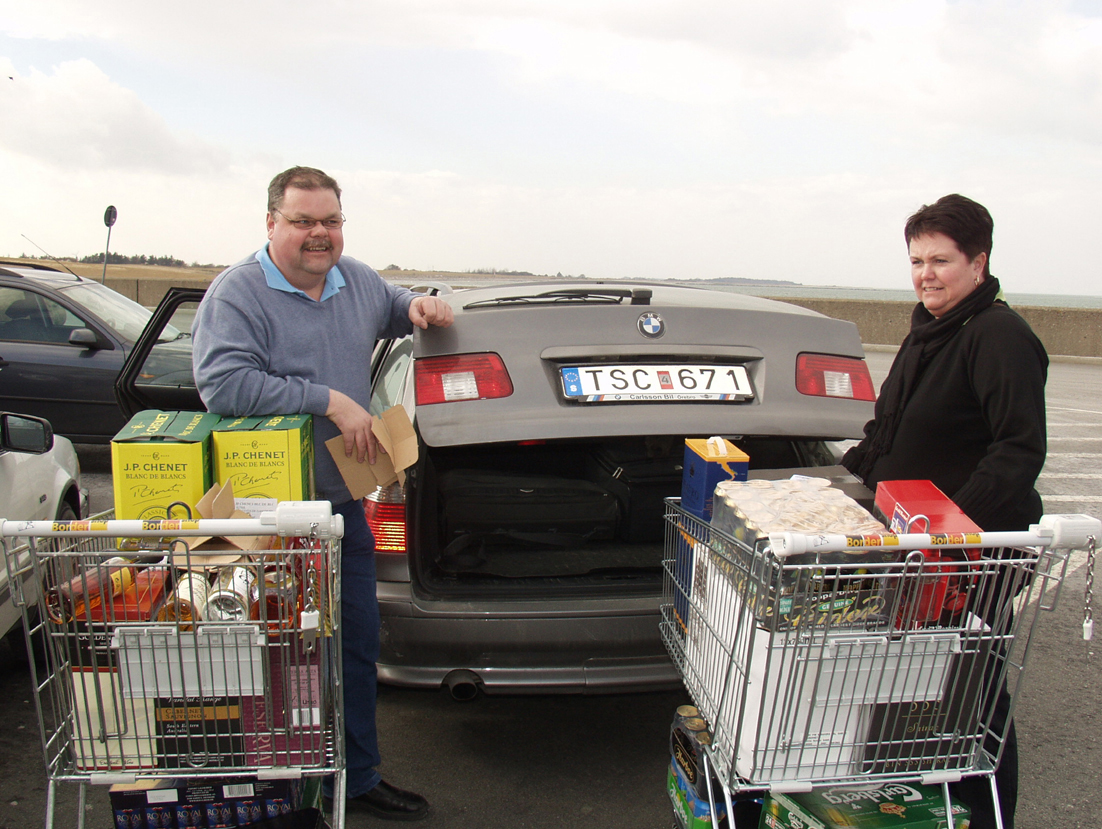EU rules against Swedish monopoly on alcohol sales
In June the European Court of Justice ruled that Systembolaget, the monopolist alcohol retailer, had no right to prevent citizens from importing alcohol from other EU countries.
The court, located in Luxembourg, said a Swedish law that barred private citizens from importing alcohol, thus bypassing the state-owned monopoly known as Systembolaget, was in contradiction of EU law because it inhibited the free movement of goods, a key pillar of the EU’s single market. Under Swedish law, the off-trade sale of alcoholic beverages is carried out exclusively by Systembolaget’s 400 or so shops. Only wholesalers authorised by the state are allowed to import alcohol.
In its ruling, the court dismissed the argument by Systembolaget that its restrictions on alcohol imports were justified because they prevented alcohol abuse.
The court said that the blocking of imports “is less a method of limiting alcohol consumption generally than a means of favouring Systembolaget as a channel for the distribution of beverages.” Such a ban, it added, “cannot be justified on the grounds of protection of the life and health of humans.”
The case brought to the highest EU court originated in a complaint by a Swede, Klas Rosengren. Along with several other Swedes, Rosengren had ordered Spanish wine through a Danish Web site because that was less expensive than buying it through the state monopoly. The wine was imported into Sweden without being declared to customs by a private transporter. When it was confiscated by the customs authorities at Göteborg, criminal proceedings were brought against Mr Rosengren and other individuals for unlawful importation of alcoholic beverages.
The case eventually was referred to the Swedish Supreme Court, which asked the European Court of Justice to rule on whether the ban was justified. The Swedish Supreme Court must now decide how to apply the EU court ruling.
Among Swedes, Systembolaget has always been a contentious issue. The state monopoly has several advantages, not least for the alcohol producers: it must carry beers and other alcohol products produced by Swedish firms and deliver them to even the most remote hamlets, which gives brewers and distillers a more or less guaranteed distribution. Nevertheless, consumers have always felt put upon by Systembolaget with its restricted opening hours (only Mondays to Saturdays) and its Big Brother mentality. Only a few decades ago the shops kept books on individual customers in which they noted how much alcohol people had bought.
Oliver Drewes, an EU spokesman, was quoted as saying that the ruling sent out a clear signal to the member states that they could not erect protectionist barriers under the guise of public health. “This ruling underlines that when EU citizens buy alcohol for personal use from another EU country, on the Internet or in a shop, they cannot be stopped, no matter what the distribution arrangements in their home country are.”
In Sweden, the ruling is likely to dent the state monopoly’s alcohol sales while depriving the government of some revenues from the sale of wine and beer. But it will leave intact Systembolaget and its retail monopoly which, all things considered, contravenes free market principles.
The public health minister in Sweden, Maria Larsson, reportedly insisted that the ruling would not affect the alcohol sales monopoly or the high taxes on imported liquor. “Sweden’s alcohol policies stay firm, with our goals to reach decreased alcohol consumption,” she said. Systembolaget sells alcohol only to people 20 years old or older.
As a consequence of Sweden’s alcohol policies, which also make beer, wine and spirits more expensive than in neighbouring countries like Germany, Swedes have turned booze shopping across the Baltic Sea into a Nordic past-time. Germany’s ports are abuzz with Swedes who come there on the ferries to shop for huge amounts of inexpensive beer and wines which they then take back to Sweden as “personal imports”.
Obviously, this new Swedish habit does not go down well with the anti-alcohol lobby. It reckons that in the 2000s, alcohol consumption has risen sharply while recorded sales have been relatively stable. Total consumption in 2004 was estimated at 10.4 litres of pure alcohol per inhabitant aged 15 years or more. This is believed to be the highest figure in more than 100 years. Much of the alcohol consumed nowadays comes from private imports, whose share was estimated at 26 percent in 2004. In the same year, 2 percent derived from legal home production, 10 percent from smuggling and illicit home distilling (i.e. illegal sources), 16 percent from restaurants and grocer’s shops, and 46 percent from Systembolaget.
Between 1990 and 2004, it is estimated that the share of unrecorded alcohol has doubled from 18 to 38 percent of total consumption.
Authors
Ina Verstl
Source
BRAUWELT International 2007

